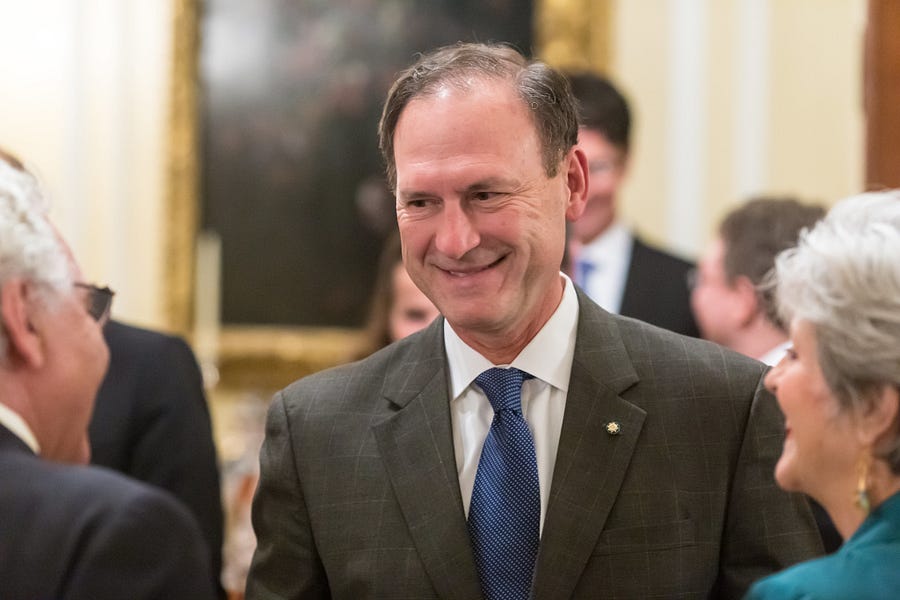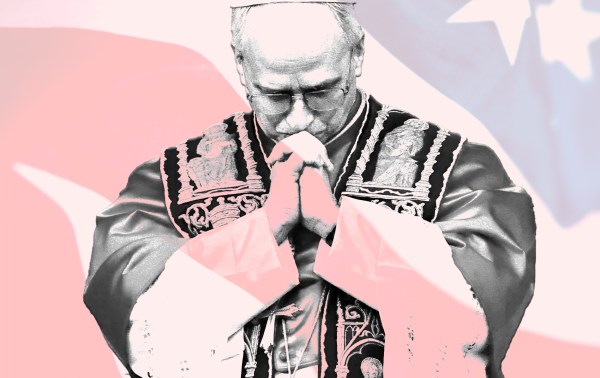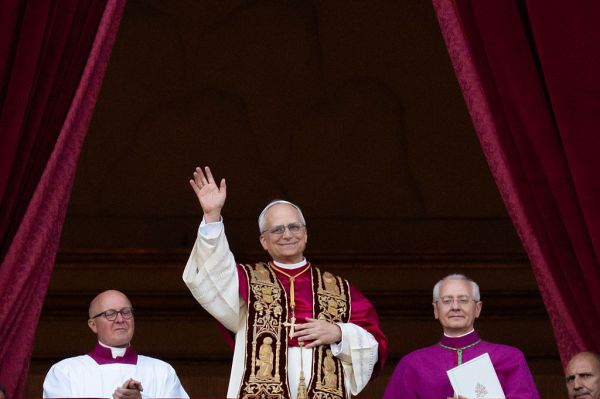In a viral video on Facebook, Jerry Mclaughlin from 20 Days to Save the USA, a pro-Trump organization, discussed recent Supreme Court circuit assignments and claimed that such assignments were due to emergency measures because of the election. He stated: “Did you know that last Friday the Supreme Court posted, unceremoniously, on their webpage. Nobody picked up on it, nobody that I saw. They’re allowing individual Supreme Court justices to carry pretty much the full weight of the Supreme Court due to emergency measures with the election. Let me explain. Each justice has been assigned a district allowing individual justices to have an opinion declaring unilaterally voting decisions on voting irregularities so far.”
The Supreme Court did indeed release a list of judicial circuit assignments on Friday, but the circuit assignments were not due to emergency measures or anything relating to the recent election. In addition to their duties on the Supreme Court, it has long been practice for justices to be assigned one or more of the 13 federal judicial circuits to oversee. The recent assignments were prompted by Justice Amy Coney Barrett filling the vacancy left by Justice Ruth Bader Ginsburg.
Amy Howe, founder of SCOTUSblog, told The Dispatch Fact Check that “As a practical matter, the circuit justice usually handles fairly ministerial duties, like extensions of the time to file a petition for review and calling for a response when a request for emergency relief seems to have some merit.” Howe said that a justice can deny a request for emergency relief but that “the current practice is that the circuit justice will refer anything that seems to have any real merit to the full court so that they can all vote on it.”
Justice Samuel Alito has been assigned to the 3rd Circuit, which includes Pennsylvania. That prompted Mclaughlin to claim that Alito, could “overturn that decision that the Pennsylvania Supreme Court made [allowing mail-in ballots to be counted even if the outside envelope was not properly filled out].”
Howe explained “[Alito] could theoretically put it on hold (the legal term is a ‘stay’).” But she added that “the justices have a practice of not acting on any significant requests for a stay on their own, but instead sending to the full court for them to vote. But [Alito] couldn’t overturn it on the merits—that is something that the full court would have to do.”
The Supreme Court circuit assignments are just the latest in a long practice of justices handling administerial duties within circuits, and were not due to emergency measures. It is also untrue that one justice can unilaterally overturn a lower court ruling in his or her circuit.
If you have a claim you would like to see us fact check, please send us an email at factcheck@thedispatch.com. If you would like to suggest a correction to this piece or any other Dispatch article, please email corrections@thedispatch.com.







Please note that we at The Dispatch hold ourselves, our work, and our commenters to a higher standard than other places on the internet. We welcome comments that foster genuine debate or discussion—including comments critical of us or our work—but responses that include ad hominem attacks on fellow Dispatch members or are intended to stoke fear and anger may be moderated.
With your membership, you only have the ability to comment on The Morning Dispatch articles. Consider upgrading to join the conversation everywhere.